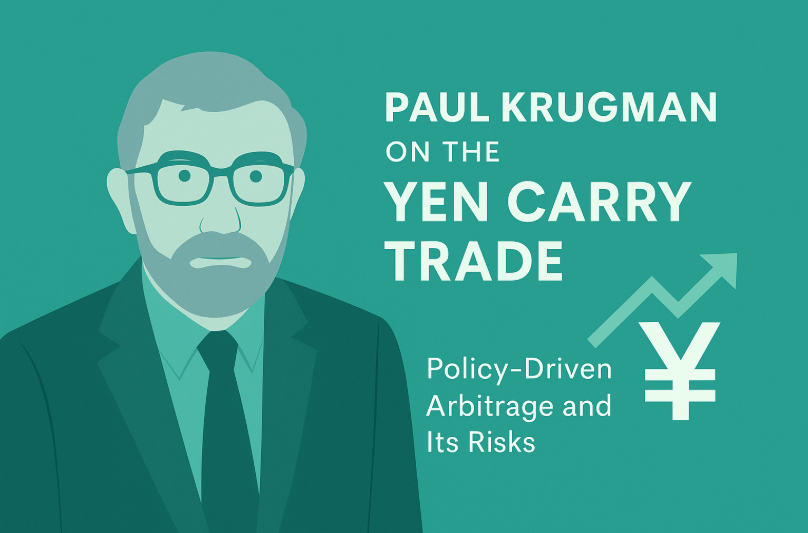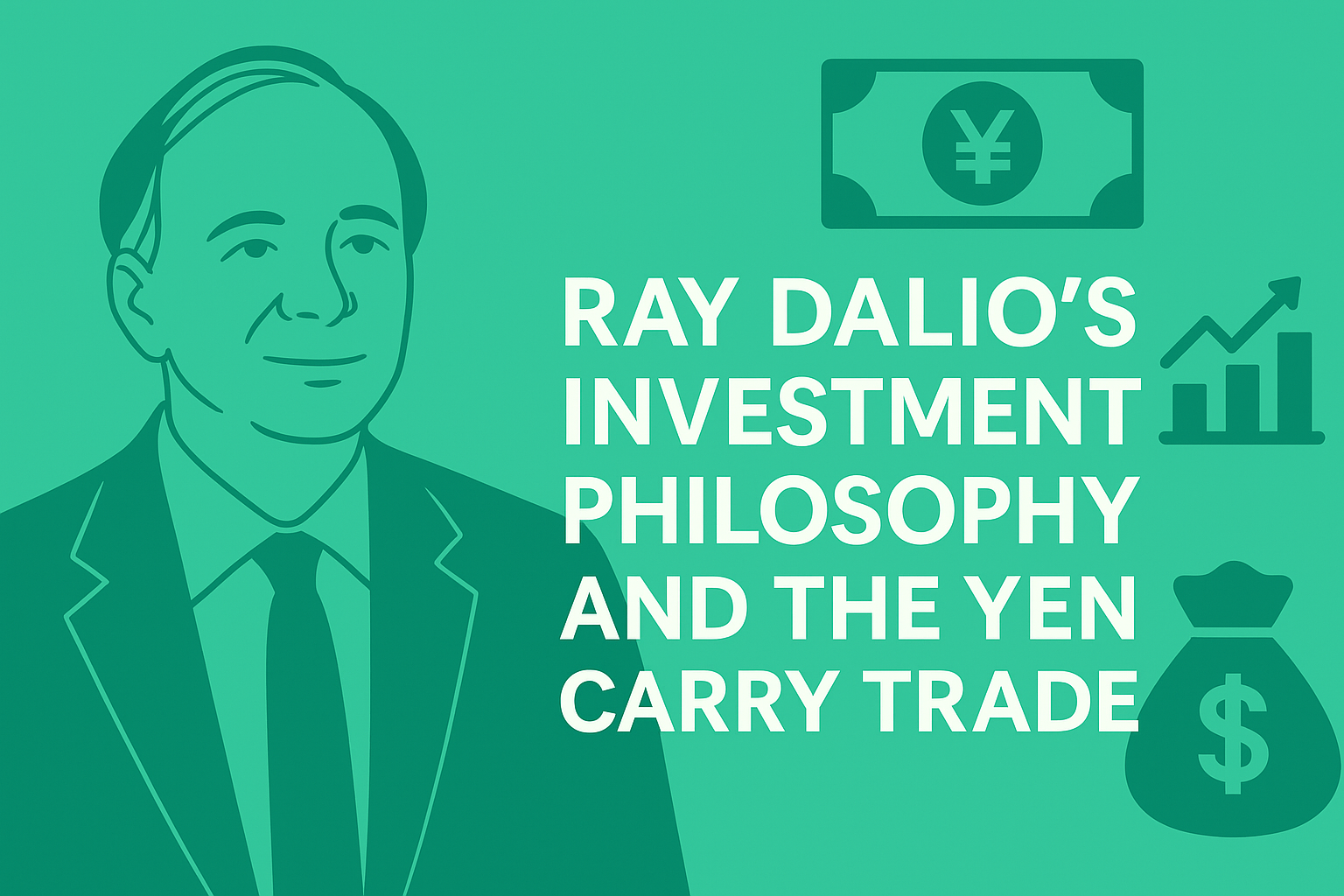— Policy-Driven Arbitrage and Its Vulnerabilities —
1. Introduction
Paul Krugman, Nobel Prize–winning economist and professor at the City University of New York, has extensively analyzed the intersection of macroeconomic policy, exchange rates, and speculative capital flows.
In his commentary on the yen carry trade, Krugman frames it as a policy-created arbitrage opportunity—one that is inherently temporary and vulnerable to changes in Japan’s monetary stance.
2. The Core of Krugman’s View
Krugman argues that the yen carry trade exists primarily because of Japan’s structural ultra-low interest rate environment.
This environment emerged from:
- Persistent deflationary pressures since the 1990s.
- The Bank of Japan’s (BoJ) long-standing zero or near-zero interest rate policy.
- Large-scale quantitative easing (QE) and yield curve control (YCC).
In Krugman’s analysis, this combination creates a predictable interest rate differential with other economies, encouraging investors to borrow yen and invest in higher-yielding currencies and assets.
3. Krugman’s Key Points on Risks and Limitations
(1) Policy Dependence
- The carry trade is entirely dependent on the BoJ’s commitment to low interest rates.
- If inflation rises and the BoJ is forced to tighten policy, the interest rate differential will shrink, eliminating the fundamental incentive for the trade.
(2) Vulnerability to Policy Shifts
- Even modest BoJ rate hikes can trigger massive position unwinds, as leveraged positions become unprofitable.
- This reversal can cause rapid yen appreciation, amplifying volatility in global currency and equity markets.
(3) The Illusion of Permanence
- Market participants may begin to view the low-rate environment as a permanent structural condition, but Krugman warns this is a fallacy.
- Monetary regimes can and do shift, especially when inflationary pressures become politically and socially untenable.
4. Potential Market Implications of a BoJ Shift
Krugman emphasizes that a BoJ policy shift could:
- Trigger a Short Squeeze in the Yen
- As carry trade positions unwind, demand for yen surges.
- Impact Global Risk Assets
- Capital flows retreat from high-yield markets, causing sell-offs in emerging market debt and equities.
- Alter Global Liquidity Conditions
- Reduced yen-based funding tightens global credit availability.
5. Philosophical Context
Krugman’s stance is consistent with his broader economic philosophy:
- Monetary policy is not static—it responds to inflation, unemployment, and political pressures.
- Arbitrage opportunities in FX markets are temporary—eventually eroded by macroeconomic adjustments.
- Financial stability requires awareness of policy-driven risks—especially in trades heavily reliant on a single central bank’s stance.
6. Conclusion
From Krugman’s perspective, the yen carry trade is a product of an extraordinary policy environment, not a naturally sustainable strategy.
Its profitability is contingent on Japan’s commitment to ultra-low rates—a commitment that could be reversed if domestic inflation gains momentum.
For global investors, this means the yen carry trade should be viewed as opportunistic and tactical, not as a permanent pillar of portfolio strategy.


